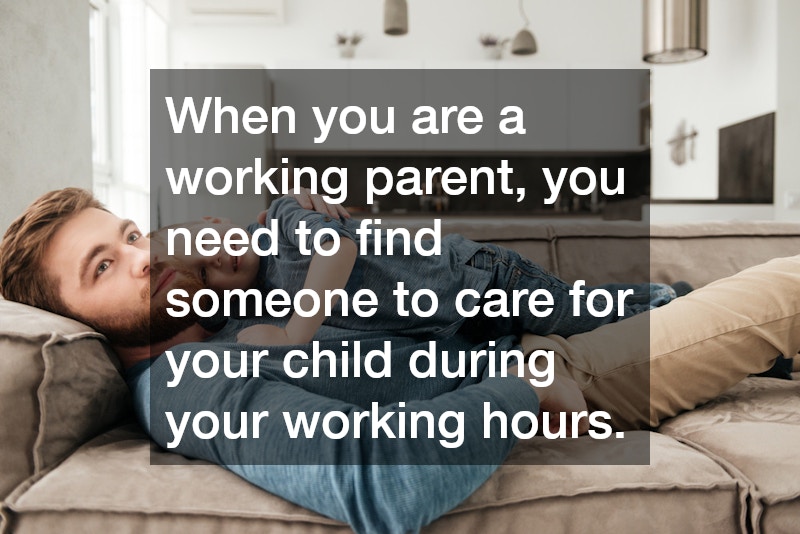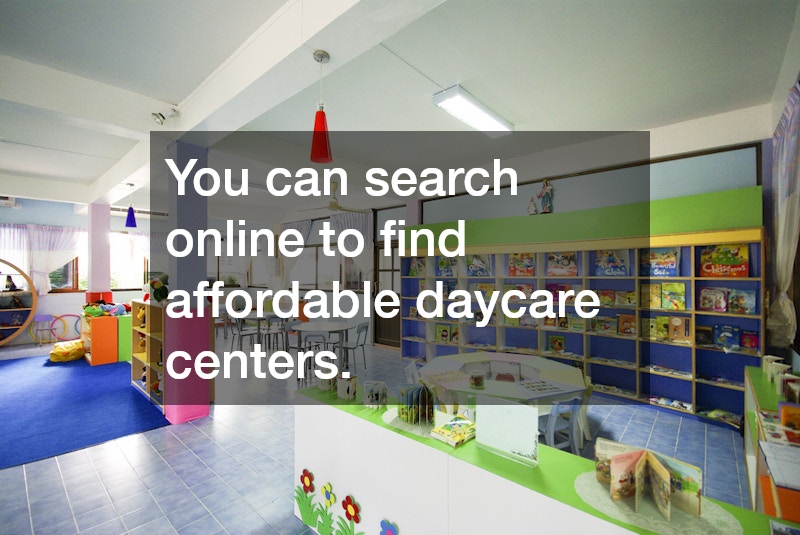
When you are a working parent, you need to find someone to care for your child during your working hours. Many parents choose a daycare center to fill that role. According to Happy Bunnies, the benefits of daycare for your child include helping your child become ready to transition to elementary school.

Children who attend daycare centers also learn how to function in a classroom setting and acquire social skills, which helps them feel more at ease in school. Although daycare centers aren’t, by nature, academically focused, some of them will offer the basics of number and literacy skills. According to Care for Kids, daycare for two-year-olds can bring improvements to their cognitive, emotional, and social development.
Because of their proximity to other children, kids who go to daycare may also acquire a better immunity status from being exposed to the germs of the children in their classes. Although you may see the benefits of daycare for your child, you may be concerned about the costs. You can search online to find affordable daycare centers. If the cost of the program remains elusive, check with the management of the center for information about daycare loans.

All parents are invested in their children’s education, since a good education in elementary school and beyond is the key to that child’s future. In the United States today, parents are always looking for the best schools for their children, and that may even include specialty institutions of learning such as art schools or performance arts schools. What is more, many parents today are choosing to send their children to preschool, and this may give any child a head start on his or her education and help them learn social skills with their peers. That, and a child may simply enjoy preschool and the programs that such schools offer.
Parents or guardians may look for local schools when their child is old enough for it or when the family moves to a new city, state, or county, and a search online should specify what sort of school is being sought out. Searching “preschool near my home” along with one’s ZIP code may show nearby preschools, and some of them may in fact be privately funded and run. Meanwhile, parents may also look up something such as “best private grade schools” or “good private high schools nearby” if they want to reap the benefits of private education for their children.
Finding a Preschool
As mentioned above, an online search such as “preschool near my home” may help a parent find a suitable pre-K school for their child, but “preschool near my home” can be made more specific, such as “private preschool near my home” or “preschool near my home with the best teachers.” Parents may do this if they don’t have trustworthy personal references to use, or if they moved to a new area and don’t know what is what. Once parents or guardians perform that online search, they may find a whole list of results, listing nearby schools and their names and addresses. The client may strike out schools that are deemed too far away or those that aren’t accepting new students, then bring their child along to visit the rest in person.
Once a parent and their children visit a school, the parents may consult the teachers and staff there to determine the level of funding, each teacher’s credentials, and what specialty programs the school might offer. That, and the parent may look into parent reviews for further context. The child, meanwhile, will get their own impression of the school and the staff working there, and if the child feels comfortable in that school and around the staff, that school may be a strong candidate, and parents may note that. The family might visit a few different preschools before settling on one, and this is quite common. Many more parents are now sending their children to preschool than since the early 1990s, interested in the many educational benefits for their children aged three to five.
Finding an Elementary School
While preschool is not mandatory for a young child, their K-12 education certainly is, and parents may look for good schools when a child is old enough for kindergarten or when the family moves somewhere new. Here again, the family may look up a particular type of school, based on the child’s age or last grade completed, and parents may specify that they are only looking for the best schools in the area. On top of that, parents may decide whether to send their child to a private or public school.
What is the difference? Private and public schools exist among elementary, middle, and high schools alike, and it may be noted that public schools are the majority. These schools are federally run and funded, and don’t charge tuition. By contrast, one in four American schools is privately funded and run, hence the name, and they do charge tuition. Parents who can afford that may find this option highly attractive, since private schools usually offer expert and highly motivated teachers, along with generous funding and ample programs for the students. Teachers at private schools report much lower incidence rates of student apathy or lack of parental involvement than public school teachers do, and private high schools offer more college counseling services than public ones do. Still, a high quality public school may be easily adequate for many families’ needs.
